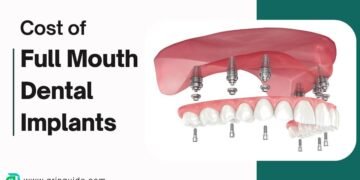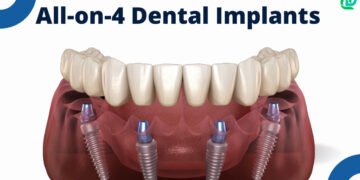Table of Contents
Picture this: you’re enjoying a delicious meal with friends when suddenly, you feel a sharp pain in your mouth. You realize that one of your teeth is loose and in need of immediate attention. The thought of having a missing tooth can be daunting, but fear not, for dental implants are here to save the day.
Dental implants are a revolutionary solution for missing teeth that provide a permanent and natural-looking replacement. This surgical procedure involves placing a titanium implant into the jawbone, which serves as a root for the artificial tooth to be attached. The result is a strong and durable tooth that looks and functions just like a natural tooth.
The Benefits of Dental Implants
One of the key benefits of dental implants is their longevity. Unlike other tooth replacement options, such as dentures or bridges, dental implants can last a lifetime with proper care. This makes them a cost-effective and durable solution for individuals looking to restore their smile and confidence.
Another advantage of dental implants is their ability to preserve the health of surrounding teeth and the jawbone. When a tooth is missing, the surrounding teeth can shift and the jawbone can deteriorate over time. Dental implants prevent these negative effects by stimulating the jawbone and maintaining the alignment of the teeth.
Furthermore, dental implants offer improved comfort and functionality compared to traditional tooth replacement options. With implants, you can eat, speak, and smile with confidence, knowing that your replacement tooth is securely in place.
Dental Implants Price
When it comes to dental implants, the price can vary significantly depending on several factors. The first key point to consider is the location of the dental clinic or dentist performing the procedure. In metropolitan areas, the cost of dental implants tends to be higher due to higher overhead costs. On the other hand, in smaller towns or rural areas, you may find more affordable options.
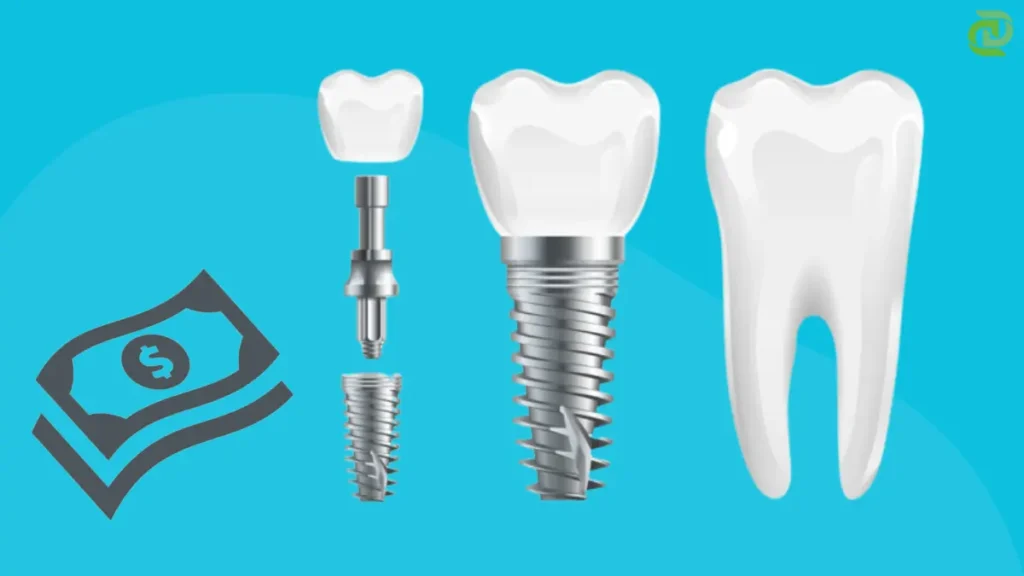
Another factor that affects the price of dental implants is the complexity of the case. If you need additional procedures such as bone grafting or sinus lifts before the implant can be placed, this will increase the overall cost. Additionally, the type of implant used, the materials used, and the expertise of the dentist can also influence the price.
It’s important to remember that while dental implants may seem expensive upfront, they are actually a long-term investment in your oral health. Unlike other tooth replacement options like dentures or bridges, dental implants are designed to last a lifetime with proper care. This can ultimately save you money in the long run by avoiding the need for frequent replacements.
When considering the price of dental implants, it’s essential to consult with multiple dental providers to compare quotes and choose the option that best fits your budget and needs. Some dental clinics may offer financing options or payment plans to help make dental implants more affordable.
In conclusion, the price of dental implants can vary based on several factors including location, complexity of the case, and materials used. While they may seem costly upfront, dental implants are a long-term solution that can improve your quality of life and oral health. Be sure to research your options, consult with multiple providers, and consider the long-term benefits when deciding on dental implants.
Factors Affecting the Longevity of Dental Implants
While dental implants are known for their durability and longevity, several factors can influence how long they last. One of the most crucial factors is the patient’s oral hygiene habits. Regular brushing, flossing, using interdental brush and routine dental check-ups are essential for maintaining the health of the implant and surrounding tissues.
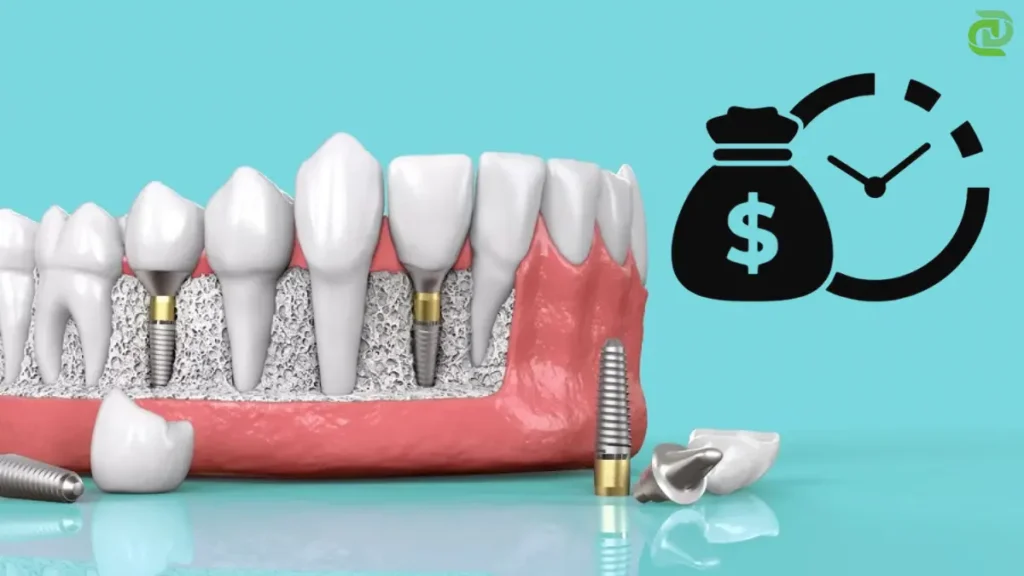
Another factor that can affect the lifespan of a dental implant is the patient’s overall health. Certain medical conditions, such as diabetes or autoimmune disorders, can increase the risk of implant failure. It is crucial for patients with these conditions to work closely with their healthcare providers to manage their health and minimize potential risks.
The quality of the implant procedure is also a significant factor in determining how long a dental implant lasts. It is essential to choose a skilled and experienced dentist or oral surgeon who specializes in implant dentistry. A well-planned and executed implant procedure increases the chances of success and longevity of the implant.
Additionally, the type of implant material used can play a role in its longevity. Titanium implants are the most commonly used and have a proven track record of success. They are biocompatible and fuse with the jawbone, providing a stable foundation for the prosthetic tooth. Other materials, such as zirconia, are also used but may have different longevity characteristics.
Dental Implants Maintenance and Care
To ensure the long-term success of a dental implant, proper maintenance and care are crucial. Following the dentist’s instructions and adopting good oral hygiene practices is essential. This includes brushing twice a day with a soft-bristle toothbrush and using dental floss or interdental brushes to clean between the teeth and around the implant.
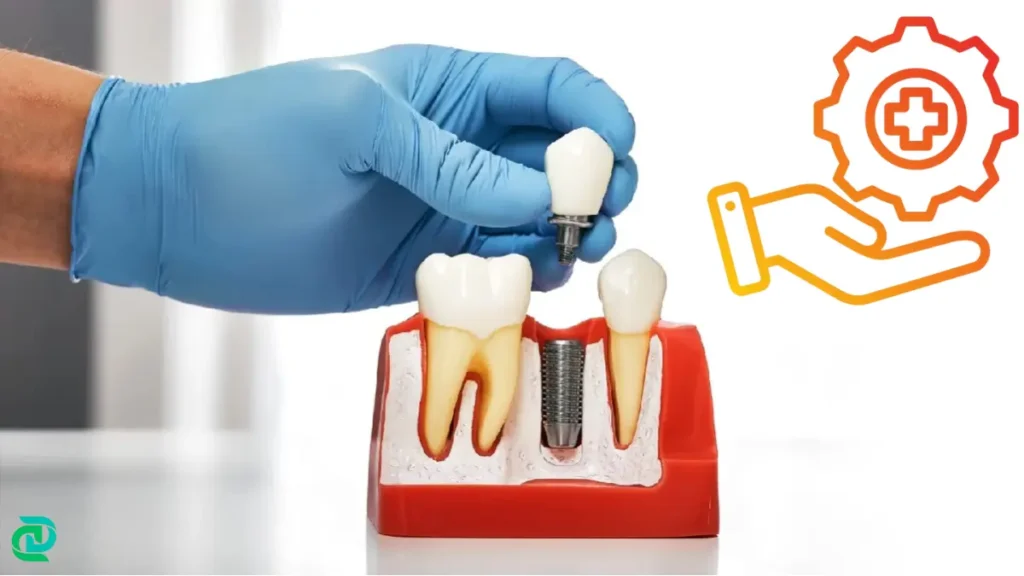
Regular dental check-ups are also necessary to monitor the health of the implant and surrounding tissues. During these visits, the dentist will evaluate the implant’s stability, check for any signs of inflammation or infection, and perform professional cleaning.
In some cases, additional preventive measures may be recommended to protect the implant. For example, the dentist may suggest using a mouthguard during sports activities or grinding teeth at night. These precautions can help prevent accidental damage to the implant.
How Painful is Getting a Tooth Implant?
The process of getting a tooth implant involves several stages, and while some discomfort can be expected, most patients find the procedure to be relatively painless. Before the implant surgery, your dentist will administer local anesthesia to numb the area, ensuring that you won’t feel any pain during the procedure.
After the surgery, it is normal to experience some swelling, bruising, and mild discomfort. Your dentist may prescribe pain medication to manage any post-operative pain. However, most patients find that over-the-counter pain relievers are sufficient to alleviate any discomfort.
The level of pain experienced during the recovery period varies from person to person, but it is typically manageable and subsides within a few days.
During the healing process, it is important to follow your dentist’s instructions carefully to minimize any potential pain or complications. This includes maintaining good oral hygiene by gently brushing and flossing around the implant site, avoiding hard or chewy foods that may put pressure on the implant, and attending follow-up appointments to monitor the healing progress.
In some cases, patients may experience more significant discomfort or pain if complications arise, such as infection or implant failure. However, these instances are relatively rare and can often be prevented with proper care and maintenance.
If you have any concerns about the level of pain or discomfort you are experiencing after getting a tooth implant, it is important to contact your dentist for further evaluation and guidance.
Overall, while there may be some discomfort associated with getting a tooth implant, most patients find that the benefits of having a fully functional and aesthetically pleasing tooth far outweigh any temporary pain.
With advancements in dental technology and anesthesia techniques, the process has become increasingly comfortable and efficient, allowing patients to regain their confidence and oral function with minimal discomfort.
What Are the Risks of Dental Implants?
Dental implants are considered a safe and reliable tooth replacement option. However, as with any surgical procedure, there are some risks involved. These risks may include:
- Infection at the implant site
- Damage to surrounding teeth or blood vessels
- Nerve damage, leading to numbness or tingling sensation
- Implant failure or rejection
- Complications during the healing process
- Problems with the implant’s stability or function
- Implant fracture or breakage.
- Changes in bite alignment or jaw joint problems
- Allergic reactions to materials used in the implant
- Excessive bleeding or bruising
While these risks may sound alarming, it’s important to remember that they are rare occurrences. The majority of dental implant procedures are successful and have a high rate of long-term success. However, it is crucial to choose an experienced and qualified dentist or oral surgeon to perform the implant procedure to minimize the risks.
During the initial consultation, your dentist will thoroughly evaluate your oral health and discuss any potential risks or complications specific to your case. They will also explain the steps you can take to reduce these risks and ensure a successful outcome.
One of the most effective ways to minimize the risk of infection is to maintain good oral hygiene before and after the implant surgery. This includes brushing your teeth twice a day, flossing daily, and using an antibacterial mouthwash. Your dentist may also prescribe antibiotics to prevent any potential infections.
It is also essential to attend regular dental check-ups and follow-up appointments to monitor the progress of your dental implant and address any concerns promptly. Your dentist will closely examine the implant site, take X-rays if necessary, and make sure that the implant is integrating properly with the surrounding bone.
By following these guidelines and working closely with your dentist, you can significantly reduce the risks associated with dental implants and enjoy the benefits of a restored smile and improved oral health.
What Is the Best Age for Dental Implants?
There is no specific age requirement for dental implants. The suitability of dental implants depends more on the patient’s oral health and bone density than their age. In general, dental implants are a viable option for adults of any age who have fully developed jawbones.
However, it is important to note that dental implants are not recommended for children and teenagers whose jaws are still growing. It is advisable to wait until their jawbones have fully developed before considering dental implant surgery.
For adults, the best age for dental implants can vary depending on individual circumstances. Some adults may require dental implants earlier in life due to tooth loss caused by accidents, injuries, or genetic factors. Others may need dental implants later in life as a result of age-related tooth loss or deterioration of existing dental work.
When considering dental implants, it is essential to consult with a qualified dentist or oral surgeon who can evaluate your specific situation and determine the best course of treatment. They will take into account factors such as your overall oral health, bone density, and any underlying medical conditions that may affect the success of the implant procedure.
In addition to age, other factors that may influence the timing of dental implant surgery include the presence of gum disease, the need for bone grafting or sinus lift procedures, and the overall stability of the patient’s oral health. It is crucial to have a comprehensive evaluation and treatment plan to ensure the success and longevity of dental implants.
Furthermore, it is worth noting that dental implant technology has advanced significantly in recent years, making it possible for older adults to benefit from this restorative dental treatment. With proper care and maintenance, dental implants can provide a long-term solution for missing teeth, regardless of age.
In conclusion, while there is no specific age requirement for dental implants, it is important to consider individual circumstances and consult with a qualified dental professional. They will be able to assess your oral health, bone density, and overall suitability for dental implant surgery, ensuring the best possible outcome for your smile and oral function.
Who Should Not Get Dental Implants?
While dental implants are a suitable tooth replacement option for most people, there are some cases where they may not be recommended. Individuals who have the following conditions or circumstances may not be suitable candidates for dental implants:
- Uncontrolled diabetes: Diabetes can affect the body’s ability to heal properly, which is essential for the success of dental implant surgery. High blood sugar levels can impair the immune system, increasing the risk of infection and complications during the healing process. It is important for individuals with diabetes to have their condition under control before considering dental implants.
- Active gum disease: Gum disease, also known as periodontal disease, can weaken the supporting structures of the teeth, including the gums and jawbone. This can compromise the stability of dental implants and increase the risk of implant failure. It is necessary to treat and manage gum disease before considering dental implant surgery.
- Heavy smokers: Smoking can have a detrimental effect on oral health and the success of dental implant surgery. Smoking reduces blood flow to the gums and can impair the healing process. It also increases the risk of infection and implant failure. Dentists often recommend quitting smoking before undergoing dental implant treatment to improve the chances of success.
- People with certain immune disorders: Certain immune disorders can affect the body’s ability to heal and fight off infections. This can increase the risk of complications during and after dental implant surgery. Individuals with immune disorders should consult with their healthcare provider to determine if dental implants are a suitable option for them.
- Individuals with inadequate jawbone density: Dental implants require a sufficient amount of jawbone to provide stability and support. If a person has inadequate jawbone density, it may not be possible to place dental implants without additional procedures such as bone grafting. Your dentist or oral surgeon will evaluate your jawbone density through imaging techniques to determine if you are a candidate for dental implants.
If you have any of these conditions, it is important to consult with your dentist or oral surgeon to determine if dental implants are a viable option for you. In some cases, alternative tooth replacement options may be recommended.
It is crucial to have a thorough evaluation of your oral health and medical history to ensure the best treatment plan for your specific needs.
How Many Teeth Do You Need for Implants?
Dental implants can be used to replace a single missing tooth or multiple missing teeth. The number of teeth you need to replace will depend on your specific situation and the recommendation of your dentist or oral surgeon.
If you have only one missing tooth, a single dental implant can be placed in the empty space, providing a stable and natural-looking replacement. This is a great option for individuals who want a permanent solution that looks and functions like a real tooth. The dental implant is surgically placed into the jawbone, where it fuses with the bone over time, creating a strong foundation for the replacement tooth.
For multiple missing teeth in a row, an implant-supported bridge may be recommended. This involves placing dental implants at either end of the gap and attaching a bridge of artificial teeth to the implants. The implants act as anchors, securely holding the bridge in place.
This option is ideal for individuals who have several adjacent missing teeth and want a fixed solution that doesn’t require the removal of healthy tooth structure, as is the case with traditional bridges.
In cases where all teeth in the upper or lower jaw are missing, a full arch of teeth can be supported by a series of dental implants. This is known as an implant-supported denture or full-arch restoration.
This option provides a stable and comfortable solution for individuals who have lost all of their natural teeth. The dental implants are strategically placed along the jawbone, and a custom-made denture is attached to the implants, providing a secure and natural-looking set of teeth.
It’s important to note that the number of dental implants needed will vary depending on factors such as the quality and quantity of the jawbone, the patient’s oral health, and the desired outcome. Your dentist or oral surgeon will evaluate your specific situation and provide a personalized treatment plan that addresses your unique needs and goals.
How Many Teeth Can Be Implanted at Once?
The number of teeth that can be implanted at once depends on various factors, including the patient’s oral health, bone density, and the specific implant procedure being performed. In some cases, multiple dental implants can be placed during a single surgical procedure.
For example, if you have several adjacent missing teeth, your dentist may recommend placing multiple implants to support a bridge or denture. This can provide a more stable and functional restoration compared to individual implants for each missing tooth.
However, it is important to note that the decision to place multiple implants at once will depend on the individual patient’s circumstances and the recommendations of their dentist or oral surgeon. Factors such as overall oral health, bone density, and healing capacity will be taken into consideration to ensure the success of the implant procedure.
In cases where a patient has good oral health and sufficient bone density, it may be possible to place multiple implants during a single surgical visit. This approach can be more convenient for the patient, as it reduces the overall treatment time and minimizes the number of surgical procedures required.
During the implant placement procedure, the oral surgeon will carefully assess the patient’s bone quality and quantity to determine the optimal number of implants that can be placed. This assessment is typically done using advanced imaging techniques such as cone beam computed tomography (CBCT), which provides detailed 3D images of the patient’s jawbone.
If the patient has adequate bone volume, it may be possible to place multiple implants in a single visit. The exact number of implants will depend on the specific case and the treatment plan developed by the dental team.
It is worth mentioning that placing multiple implants at once requires careful planning and expertise. The oral surgeon must ensure that each implant is placed in the correct position and angle to support the final restoration and provide optimal function and aesthetics.
Additionally, the healing process after implant placement is crucial for the long-term success of the treatment. Placing too many implants at once can put excessive stress on the surrounding tissues and compromise the healing process.
Therefore, the decision to place multiple implants at once will depend on a thorough evaluation of the patient’s oral health and the expertise of the dental team. It is essential to consult with a qualified dentist or oral surgeon who can assess your specific case and provide personalized recommendations for the best treatment outcome.
Can You Replace 2 Teeth with One Implant?
Yes, it is possible to replace two adjacent teeth with a single dental implant. This is known as a dental implant-supported bridge. Instead of placing two separate implants, a single implant can be positioned between the two missing teeth, and a bridge of artificial teeth is attached to the implant.
This approach offers several advantages, including reduced surgical procedures, decreased treatment time, and potentially lower costs compared to placing two individual implants. It also provides a stable and natural-looking replacement for the missing teeth.
However, not all cases are suitable for replacing two teeth with one implant. The decision will depend on factors such as the condition of the adjacent teeth, the available bone density, and the recommendations of your dentist or oral surgeon.
Before undergoing the procedure, your dentist or oral surgeon will conduct a thorough examination of your oral health. They will assess the condition of the adjacent teeth to determine if they are strong enough to support a bridge. If the adjacent teeth are healthy and structurally sound, a dental implant-supported bridge can be a viable option for replacing two missing teeth.
In addition to the condition of the adjacent teeth, the available bone density in the area is also a crucial factor. Sufficient bone volume is necessary to provide a stable foundation for the implant. If there is inadequate bone density, a bone grafting procedure may be required to build up the bone before the implant can be placed.
During the consultation, your dentist or oral surgeon will take x-rays or perform a CT scan to evaluate the bone density and determine the feasibility of placing a single implant for two missing teeth. They will also consider the overall oral health and the patient’s medical history to ensure the success of the procedure.
It is important to note that while replacing two teeth with one implant can be a suitable option for some individuals, it may not be appropriate for everyone. Each case is unique, and the treatment plan should be tailored to the individual’s specific needs and circumstances.
If you are considering replacing two missing teeth with a dental implant-supported bridge, it is crucial to consult with a qualified dentist or oral surgeon who has experience in implant dentistry. They will be able to assess your oral health, discuss your treatment options, and guide you towards the best solution for your specific situation.
Can You Get 2 Teeth on One Implant?
No, it is not possible to replace two separate teeth on a single dental implant. Each dental implant is designed to support a single tooth or a bridge of multiple teeth.
If you have two adjacent missing teeth, it is typically recommended to place two individual implants to support the replacement teeth. This provides better stability and functionality compared to placing a single implant for both missing teeth.
Your dentist or oral surgeon will assess your specific situation and provide you with the most appropriate treatment plan for replacing your missing teeth.
When it comes to dental implants, precision and individual customization are key. Each implant is carefully placed in the jawbone to mimic the natural root of a tooth. This ensures a strong foundation for the replacement tooth or teeth that will be attached to the implant.
If you were to try and replace two teeth with a single implant, it would compromise the stability of the implant and increase the risk of complications. The force exerted on the implant when chewing or biting would be unevenly distributed, leading to potential damage or failure of the implant.
By placing two individual implants for two missing teeth, the load is evenly distributed, ensuring better long-term success. Additionally, having two separate implants allows for greater flexibility in terms of the size and shape of the replacement teeth. Each implant can be customized to fit the specific dimensions of the missing tooth, resulting in a more natural and aesthetically pleasing outcome.
It’s important to consult with your dentist or oral surgeon to determine the best course of action for replacing your missing teeth. They will take into consideration factors such as the location of the missing teeth, the condition of your jawbone, and your overall oral health before recommending the appropriate treatment plan.
In some cases, if you have multiple missing teeth in a row, a dental bridge may be a suitable option. A dental bridge consists of two or more replacement teeth that are anchored to neighboring natural teeth or dental implants. This can be a viable alternative to individual implants, depending on your specific circumstances.
Summary
Ultimately, the goal of replacing missing teeth is to restore functionality, improve oral health, and enhance your smile. With advancements in dental technology and techniques, there are various options available to meet your unique needs and preferences.
In conclusion, dental implants are a game-changer in the field of dentistry, providing a permanent and natural-looking solution for missing teeth. With their longevity, preservation of oral health, and improved comfort and functionality, dental implants are a wise investment for anyone looking to restore their smile and quality of life. So why wait? Schedule a consultation with your dentist today and see how dental implants can transform your smile for the better.
FAQs
-
Are Dental Implants Safe?
Dental implants are safe when performed by skilled professionals. The materials used (such as titanium) are biocompatible and well-tolerated by the body.
-
Does Dental Implant Surgery Hurt?
While a dental implant procedure is not simple, knowing what to expect can ease apprehension. Local anesthesia ensures minimal discomfort during surgery. Post-surgery, mild pain and swelling are common, but pain management techniques are effective.
-
How Long Do Dental Implants Last?
Properly cared-for dental implants can last a patient’s lifetime. Their durability and stability make them a reliable choice for tooth replacement.
-
Are dental implants removable like dentures or do they stay in your mouth?
Dental implants are fixed in the mouth and are not removable like dentures. They function like natural teeth.
-
How much do implants cost and does insurance cover the cost?
The cost of a single dental implant is comparable to a fixed bridge. Some insurance plans may cover part of the cost, but it varies by patient needs and region.

